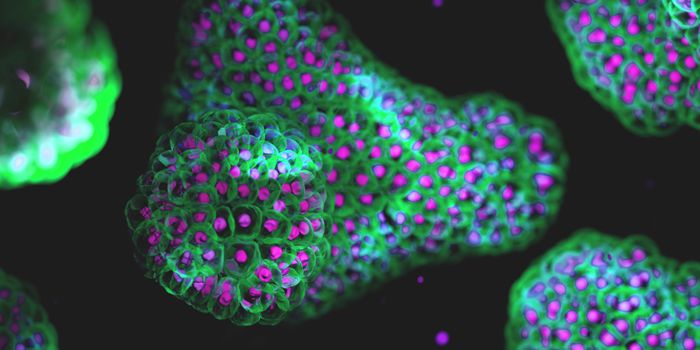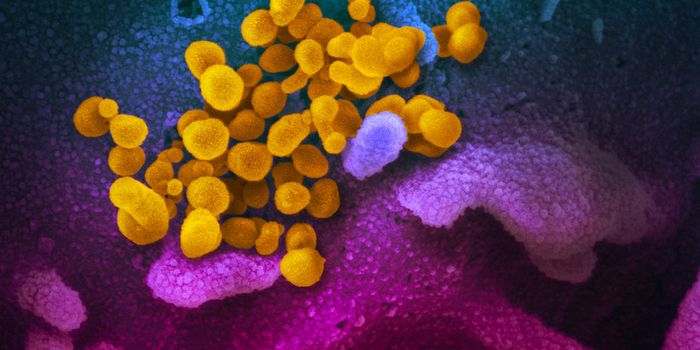A Potential Approach to Halt the Serious Complications of Epstein-Barr Virus
The Epstein-Barr virus (EBV) is known to cause a wide variety of diseases, including various types of cancer. Recent work has also indicated that it is involved to the development of multiple sclerosis as well. There are no current drugs that can eliminate EBV infections. But scientists have now identified a molecule that could prevent the development of these subsequent illnesses if it is inhibited. The findings have been reported in Science.
EBV is a member of the herpesvirus family, and was the first virus that was shown to cause cancer in people. But the vast majority of adult people - about 90 percent - are thought to be infected with the virus. Usually, most people do not experience any symptoms, although it can cause illness in certain people, such as the immunocompromised. Mononucleosis, also known as mono or kissing disease, is caused by EBV, and can seriously impact affected individuals for several months with a sore throat, swollen glands, and fever.
In this study, the researchers assessed a group of patients who had received an organ transplant, and then developed a blood cancer caused by EBV. All of these transplant patients had to take immunosuppressive drugs so that their transplant would not be rejected by their immune systems. But this drug treatment also increases the risk of a blood cancer known as post-transplant lymphoma.
EBV can infect immune cells known as B cells and reprogram them, a process that is required for EBV to establish a chronic infection and cause subsequent diseases. The researchers determined that the virus is able to cause infected cells to increase the production of an enzyme called IDO1, which triggers the mitochondria in those infected cells to produce more energy. The extra energy is necessary is necessary so that the infected and reprogrammed B cells can increase their metabolism and proliferate faster.
EBV was shown to increase IDO1 levels months before the diagnosis of post-transplant lymphoma. Therefore, this work could lead to the development of biomarkers for this disorder.
"Previously, IDO1 inhibitors have been developed in the hope that they could help to treat established cancer, which has unfortunately turned out not to be the case. In other words, there are already clinically tested inhibitors against this enzyme," explained study leader Professor Christoph Hess of the University of Basel.
Now, IDO1 inhibitors may have potential in a different application - in the reduction of risks that are raised by EBV infection. In mouse models, IDO1 inhibitors were able to reduce reprogramming in infected B cells, lower the viral load, and inhibit the development of lymphoma.
"In transplant patients, it's standard practice to use drugs against various viruses. Until now, there's been nothing specific for preventing or treating Epstein-Barr virus associated disease," added Hess.
Sources: University of Basel, Science









